How Peer Support Groups Enhance Mental Health for First Responders
3/6/2025 by Markie Bryant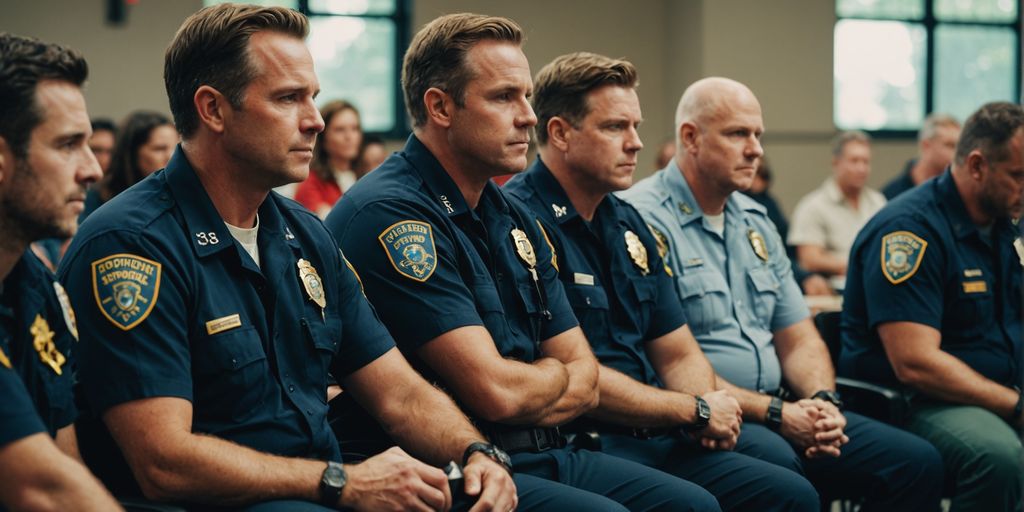

First responders face unique and significant mental health challenges due to the nature of their work, which often involves exposure to traumatic events and high-stress situations. Peer support groups have emerged as a crucial resource for these individuals, providing a safe space to share experiences and coping mechanisms. This article explores how peer support groups enhance mental health for first responders, offering insights into their operation, benefits, and future directions.
Key Takeaways
- Peer support groups provide a safe and confidential environment for first responders to share their experiences and emotions.
- These groups help reduce the stigma associated with seeking mental health support among first responders.
- Trained peer supporters play a crucial role in facilitating these groups, offering empathy and understanding based on shared experiences.
- Integration with professional mental health services enhances the effectiveness of peer support groups.
- Ongoing training and education are essential for maintaining the quality and effectiveness of peer support programs.
Understanding the Mental Health Challenges Faced by First Responders
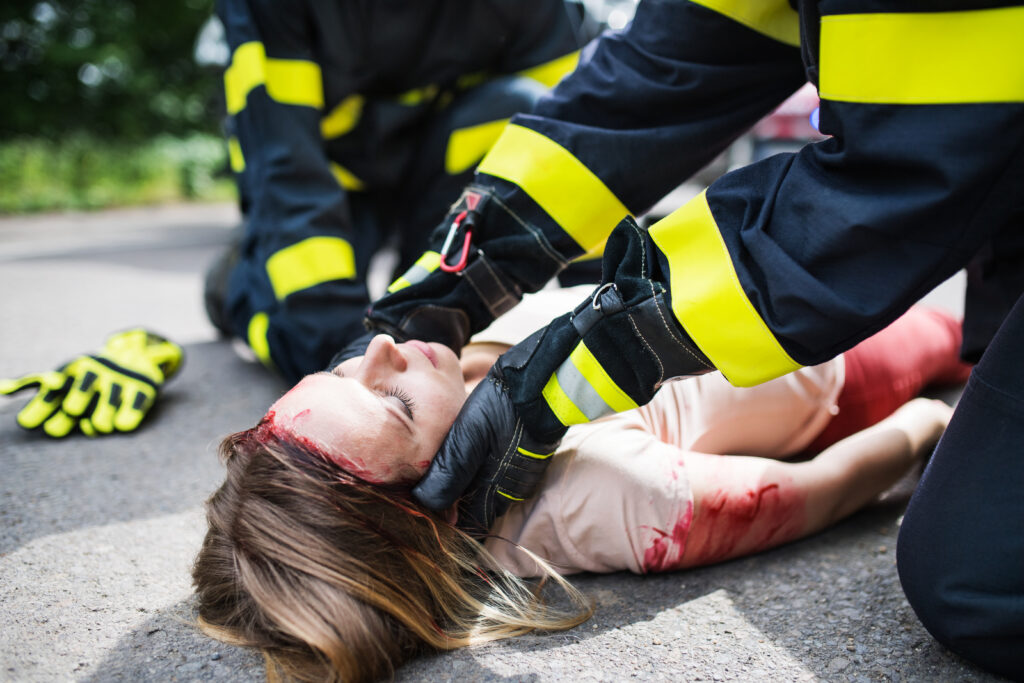
Common Stressors and Traumatic Events
First responders frequently encounter traumatic events that can have a lasting impact on their mental health. These professionals often deal with life-threatening situations, accidents, and natural disasters, which can lead to chronic stress and anxiety. The constant exposure to such events makes them more susceptible to mental health issues like PTSD and depression.
Impact on Personal and Professional Life
The mental health challenges faced by first responders can significantly affect both their personal and professional lives. At work, they may experience burnout, reduced job performance, and strained relationships with colleagues. On a personal level, these challenges can lead to difficulties in maintaining relationships, increased irritability, and a general decline in overall well-being.
Barriers to Seeking Help
Despite the high prevalence of mental health issues among first responders, many face barriers to seeking help. Stigma surrounding mental health, fear of job repercussions, and a lack of accessible resources often prevent them from getting the support they need. Addressing these barriers is crucial for improving first responder mental health and ensuring they receive the care they deserve.
It’s essential to recognize the unique mental health challenges faced by first responders and provide them with the necessary support and resources to maintain their well-being.
The Concept and Importance of Peer Support Groups
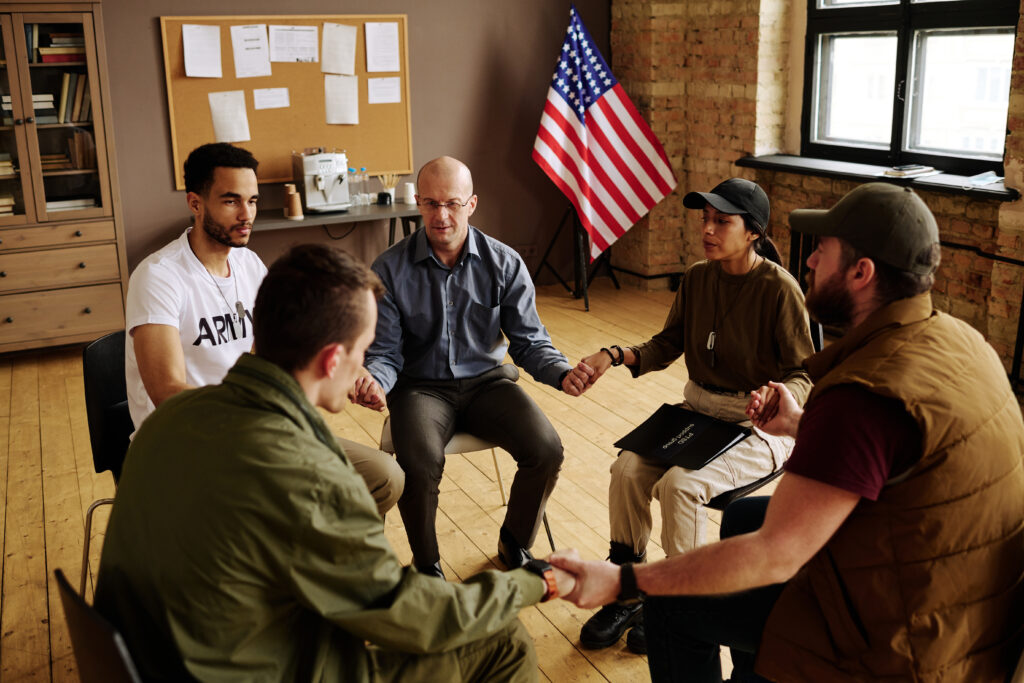
Defining Peer Support
Peer support is a broad term that encompasses various forms of assistance. It can involve crisis intervention following a critical incident or ongoing support whenever a peer is struggling. Peer supporters are distinct from regular colleagues because they have received training in basic mental health and are backed by a mental health clinician. This ensures they provide appropriate help within their scope and know when to refer someone to a behavioral health provider.
Historical Context and Evolution
The concept of peer support has evolved significantly over the years. Initially, it was informal and unstructured, but it has since developed into a more organized and systematic approach. This evolution has been driven by the growing recognition of the unique challenges faced by first responders and the need for specialized support systems.
Key Benefits for First Responders
Peer support groups offer numerous benefits for first responders, including:
- Reducing stigma: Peer support helps break down the stigma associated with seeking mental health treatment.
- Building a culture of care: These groups foster a culture of care and concern within the organization.
- Providing a safe space: Peer supporters share similar work experiences and can offer a safe space to discuss challenges.
- Modeling healthy behaviors: Peers help to model healthy behaviors and share information about sources of support.
Peer support is an integral and viable piece of the puzzle in supporting first responders. It bridges the gap between needing and seeking treatment, making it easier for individuals to access the help they need.
How Peer Support Groups Operate
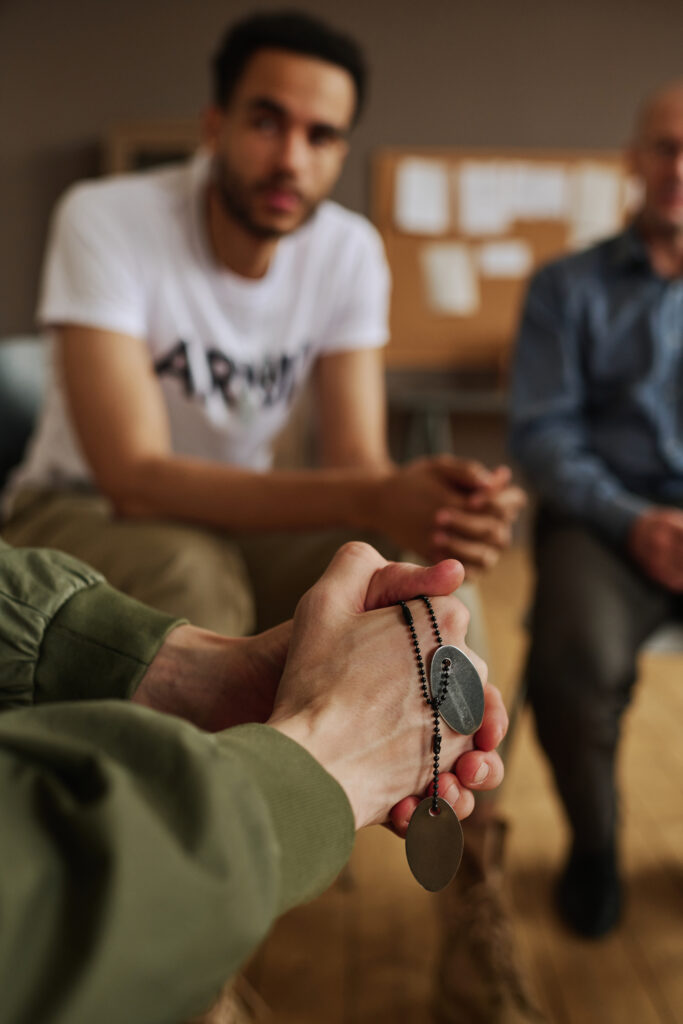
Structure and Format of Meetings
Peer support groups for first responders typically follow a structured format to ensure that every participant gets the most out of each session. Meetings are often held once a month and last between one to one and a half hours. These sessions are designed to be supportive and confidential, providing a safe space for participants to share their experiences and challenges. Trained peers lead the meetings, and clinicians are consulted as needed to support group needs.
Role of Trained Peer Supporters
Trained peer supporters play a crucial role in these groups. They help their peers cope after major critical incidents and lower the stigma associated with seeking mental health treatment. By sharing similar work experiences, they provide a safe space to discuss challenges and model healthy behaviors. Peer supporters are trained in basic mental health and are supported by mental health clinicians to ensure they provide appropriate assistance within their scope.
Confidentiality and Trust
Confidentiality is a cornerstone of peer support groups. Participants must trust that what they share will remain within the group. This trust is essential for creating an environment where first responders feel comfortable discussing their mental health challenges. The commitment to confidentiality helps build a culture of care and concern, making it easier for participants to open up and seek the help they need.
Peer support groups offer a unique blend of professional guidance and personal experience, making them an invaluable resource for first responders.
Training and Education for Peer Supporters
Essential Skills and Qualities
Peer supporters must embody several crucial skills to be effective. These include:
- Active listening skills
- Ability to establish trust and rapport
- Maintain confidentiality
- Exhibit compassion and empathy
- Capacity for having uncomfortable conversations
- Strong self-care routine/practices
Training Programs and Certifications
Peer support training helps departments start a peer support team or keep active teams trained well. This education training helps individuals to support colleagues experiencing adverse effects of trauma or critical incidents. Training models vary but involve initial team start-up, continuing education, and suicide awareness and intervention. Peer Support Training is 21 hours of training over a three-day (3) period.
Ongoing Education and Supervision
Peer supporters help their peers cope after a major critical incident, lower stigma associated with seeking mental health treatment, and help build a culture of care and concern. Peer supporters share similar work experiences and can provide a safe space to discuss challenges. Lastly, peers help to model healthy behaviors and share information about sources of support.
Ongoing education and supervision are vital to ensure peer supporters remain effective and up-to-date with the latest practices.
Integrating Peer Support with Professional Mental Health Services
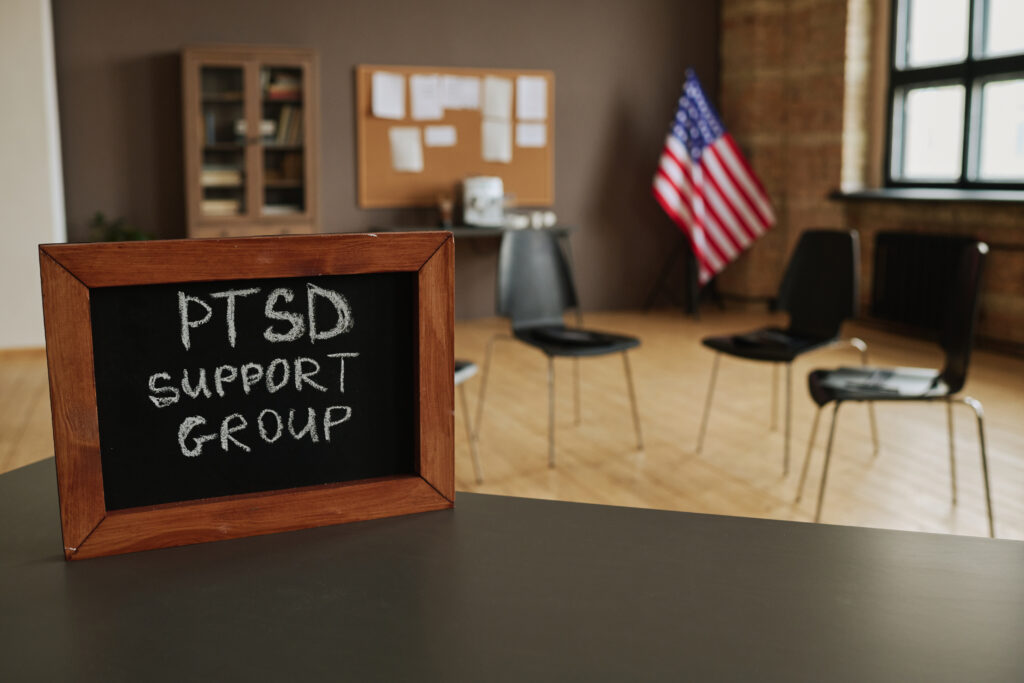
Building Referral Networks
Creating effective referral networks is crucial for integrating peer support with professional mental health services. Establishing partnerships with mental health professionals and organizations ensures that first responders have access to specialized care when needed. This collaboration helps bridge the gap between peer support and professional treatment, providing a seamless continuum of care.
Collaborations with Mental Health Professionals
Collaborations between peer supporters and mental health professionals are essential for a holistic approach to first responder safety and wellness. Peer supporters, who share similar work experiences, can provide a safe space to discuss challenges and model healthy behaviors. Mental health professionals can offer clinical expertise and support, enhancing the overall effectiveness of the peer support program.
Holistic Approaches to Mental Wellness
A holistic approach to mental wellness involves integrating peer support with professional mental health services to address the diverse needs of first responders. This approach includes:
- Crisis intervention after critical incidents
- Ongoing emotional support during times of distress
- Training programs at different levels, including peer support and resiliency training
By combining peer support with professional mental health services, we can create a comprehensive support system that addresses the unique challenges faced by first responders.
Conclusion
In conclusion, peer support groups play a pivotal role in enhancing the mental health of first responders. These groups provide a safe and confidential environment where individuals can share their experiences, coping mechanisms, and emotional struggles. By fostering a sense of community and mutual understanding, peer support groups help break down the stigma associated with mental health issues and encourage first responders to seek the help they need. The evidence is clear: peer support not only aids in immediate stress relief but also contributes to long-term mental wellness and resilience. As we continue to explore and implement effective mental health strategies, the importance of peer support for first responders cannot be overstated.
Frequently Asked Questions
What is a peer support group?
A peer support group is a gathering of individuals who share similar experiences or challenges, such as first responders, where they provide emotional and practical support to each other.
Why are peer support groups important for first responders?
Peer support groups are crucial for first responders as they offer a safe space to share experiences, reduce feelings of isolation, and provide coping mechanisms for stress and trauma.
How do peer support groups maintain confidentiality?
Confidentiality in peer support groups is maintained by establishing clear guidelines that all members must follow, ensuring that personal information shared within the group is not disclosed outside of it.
What training do peer supporters receive?
Peer supporters undergo specialized training programs that equip them with essential skills such as active listening, crisis intervention, and mental health first aid. They may also receive certifications and ongoing education.
Can peer support groups replace professional mental health services?
No, peer support groups complement but do not replace professional mental health services. They provide immediate emotional support and can help bridge the gap to professional care when needed.
How can first responders join a peer support group?
First responders can join a peer support group by reaching out to their organization’s mental health program, contacting local support networks, or attending community meetings specifically organized for peer support.